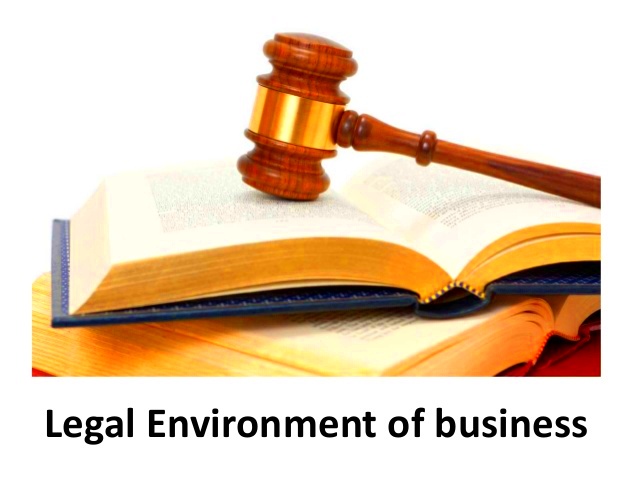Business Law and the Legal Environment: A Comprehensive Guide
Business law is essential for any organization, big or small. It encompasses a set of rules that govern how businesses operate. Understanding these laws helps businesses navigate various challenges and protects their interests. In this guide, we will explore the key concepts of business law and the legal environment that impacts businesses today.
Understanding the Basics of Business Law

Business law covers a wide range of legal issues related to business operations. Here are some key components:
- Contracts: Agreements between parties that are enforceable by law.
- Torts: Civil wrongs that cause harm or loss to someone.
- Employment Law: Regulations governing employer-employee relationships.
- Intellectual Property: Protects creations of the mind, like inventions and trademarks.
Each area plays a vital role in ensuring that businesses operate smoothly and within legal boundaries. Familiarity with these basics helps entrepreneurs and managers make informed decisions.
The Importance of Legal Compliance in Business
Legal compliance is crucial for businesses to avoid penalties and maintain their reputation. Here’s why it matters:
- Risk Management: Complying with laws reduces the risk of legal issues.
- Business Reputation: A company that follows laws is viewed more favorably by customers and partners.
- Financial Security: Legal troubles can lead to hefty fines and lawsuits, impacting financial health.
In today’s competitive market, businesses must stay updated on legal requirements. Regular training and consultation with legal experts can help ensure compliance. The benefits of legal adherence far outweigh the potential costs of non-compliance.
Key Areas of Business Law
Business law is a broad field, and understanding its key areas is crucial for any entrepreneur or business professional. Here are some of the main areas you should be aware of:
- Corporate Law: This involves the formation, governance, and dissolution of corporations. It covers shareholder rights and responsibilities.
- Employment Law: This area regulates the relationship between employers and employees, including wages, workplace safety, and discrimination.
- Intellectual Property Law: Protects creations like inventions, designs, and brands, ensuring that businesses can defend their unique offerings.
- Tax Law: Governs how businesses are taxed, including federal, state, and local tax obligations.
- Consumer Protection Law: Protects consumers from unfair trade practices and ensures their rights are upheld.
Each area comes with its own set of regulations and implications. Businesses must navigate these laws to avoid legal pitfalls and maintain compliance. Staying informed about changes in these areas can provide a competitive edge and safeguard against potential legal issues.
Contract Law and Its Implications
Contract law is a vital aspect of business law that governs agreements between parties. Contracts can be written or verbal, but having them in writing is always best. Here’s what you need to know:
- Elements of a Contract: For a contract to be enforceable, it must include the following:
- Offer
- Acceptance
- Consideration
- Mutual Assent
- Legality
- Breach of Contract: If one party fails to fulfill their obligations, it can lead to legal disputes. Remedies for breach can include:
- Damages
- Specific performance
- Rescission
- Negotiation and Drafting: Careful negotiation and clear drafting can prevent misunderstandings and disputes later on.
Understanding contract law helps businesses protect their interests and ensures that agreements are enforceable in a court of law. This knowledge can be a key factor in a company’s success.
Dispute Resolution in Business
Disputes are an inevitable part of business. Knowing how to resolve them effectively is essential for maintaining healthy relationships. Here are the primary methods of dispute resolution:
- Negotiation: The simplest form of dispute resolution, where parties communicate directly to resolve their differences without legal intervention.
- Mediation: Involves a neutral third party who helps facilitate a resolution. The mediator does not make a binding decision but aids in reaching an agreement.
- Arbitration: A more formal process where a neutral third party makes a binding decision after hearing arguments from both sides. It is often quicker and less costly than litigation.
- Litigation: The process of taking legal action in court. While it can be necessary, it is also time-consuming and expensive.
Choosing the right method of dispute resolution depends on the nature of the conflict and the relationship between the parties involved. Being proactive and establishing clear communication can often prevent disputes from escalating in the first place.
Regulatory Agencies and Their Role
Regulatory agencies play a crucial role in the business landscape by enforcing laws and regulations that govern various industries. These agencies ensure that businesses operate fairly and responsibly. Here’s a look at some key regulatory agencies and their functions:
- Securities and Exchange Commission (SEC): Oversees the securities industry, protecting investors and maintaining fair, orderly, and efficient markets.
- Federal Trade Commission (FTC): Protects consumers by preventing unfair, deceptive, or fraudulent practices in the marketplace.
- Occupational Safety and Health Administration (OSHA): Ensures safe and healthy working conditions by setting and enforcing standards.
- Environmental Protection Agency (EPA): Regulates activities that impact the environment, ensuring compliance with environmental laws.
- Food and Drug Administration (FDA): Oversees the safety and efficacy of food, drugs, and other consumer products.
Understanding the roles of these agencies helps businesses comply with regulations and avoid legal trouble. Engaging with regulatory agencies can also provide guidance on best practices and industry standards. Staying informed about changes in regulations is vital for ongoing compliance and success.
FAQs About Business Law
Here are some common questions people have about business law:
- What is business law? Business law refers to the collection of laws that govern business and commercial transactions.
- Why is legal compliance important? Legal compliance helps avoid penalties, protects a company’s reputation, and ensures smooth operations.
- What are the main areas of business law? Key areas include corporate law, employment law, intellectual property law, and contract law.
- How can disputes be resolved? Disputes can be resolved through negotiation, mediation, arbitration, or litigation, depending on the situation.
- Do I need a lawyer for my business? While it’s not mandatory, having a lawyer can help navigate legal complexities and protect your interests.
Understanding these common questions can empower business owners to make informed decisions and seek legal guidance when necessary.
Conclusion on Business Law and Its Importance
In conclusion, business law is fundamental to ensuring that companies operate within legal frameworks. It helps protect businesses from legal risks, promotes fair competition, and safeguards consumer rights. By understanding the key areas of business law, such as contract law, dispute resolution, and the roles of regulatory agencies, entrepreneurs can make informed decisions that support their business objectives.
Legal compliance is not just a requirement but also a best practice that enhances a business’s reputation and long-term success. Whether you’re a startup or an established company, staying informed about business law will help you navigate the complexities of the business environment and build a solid foundation for growth.


